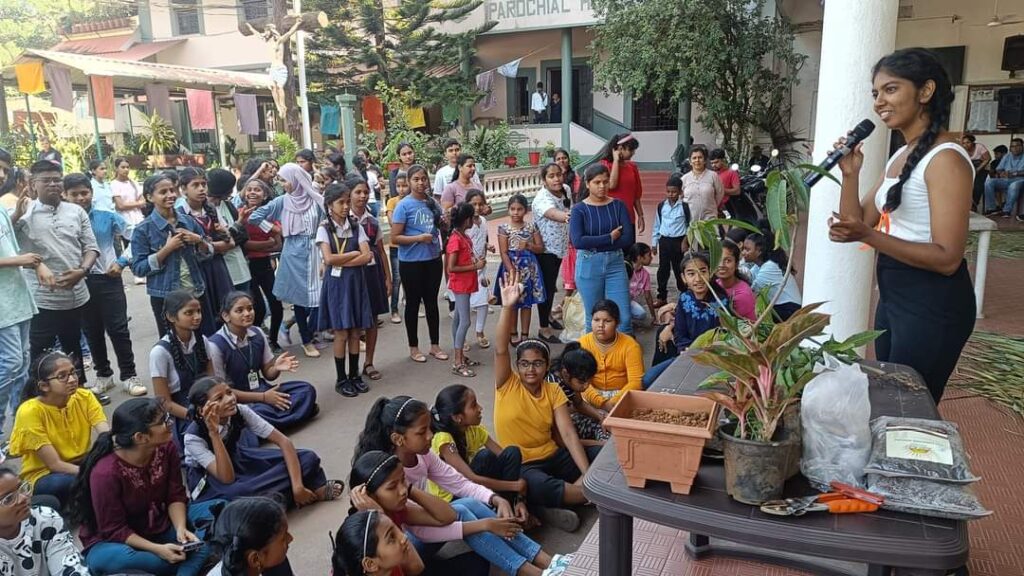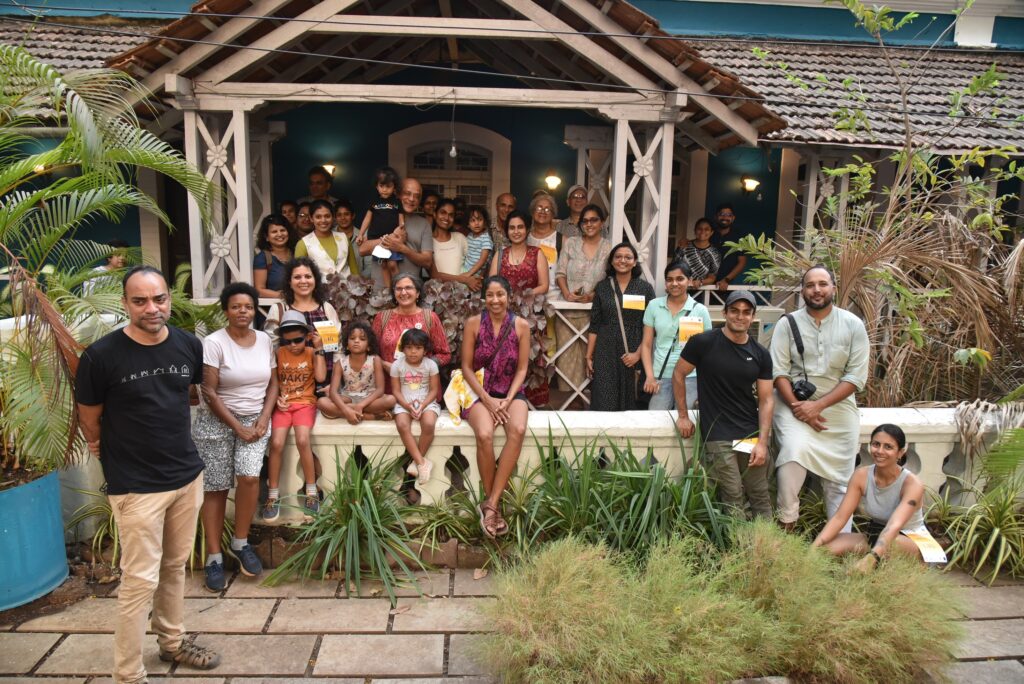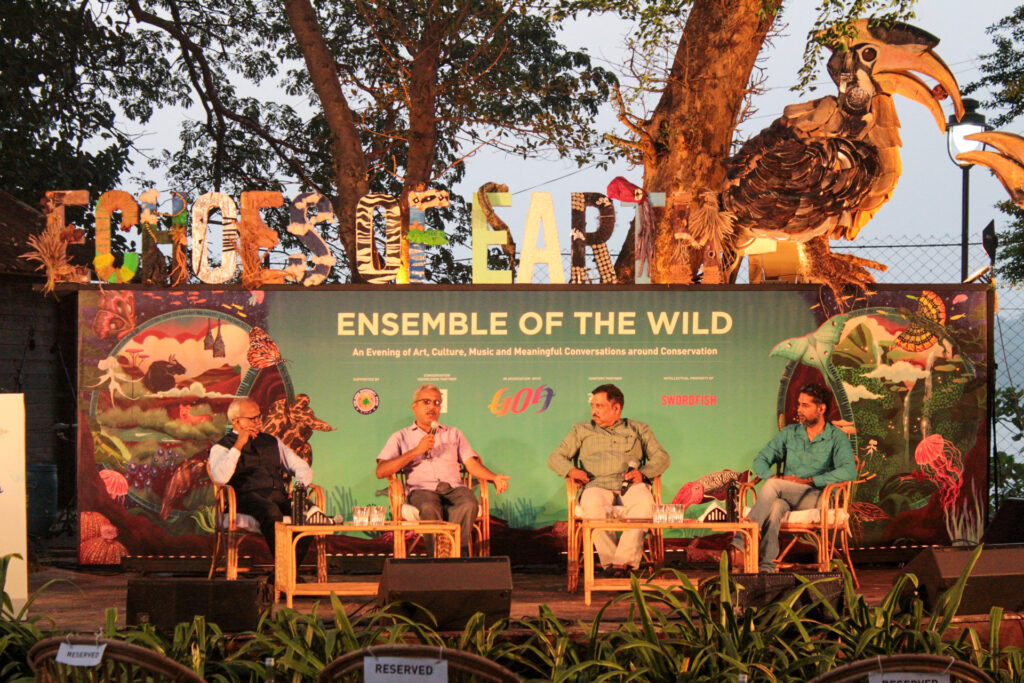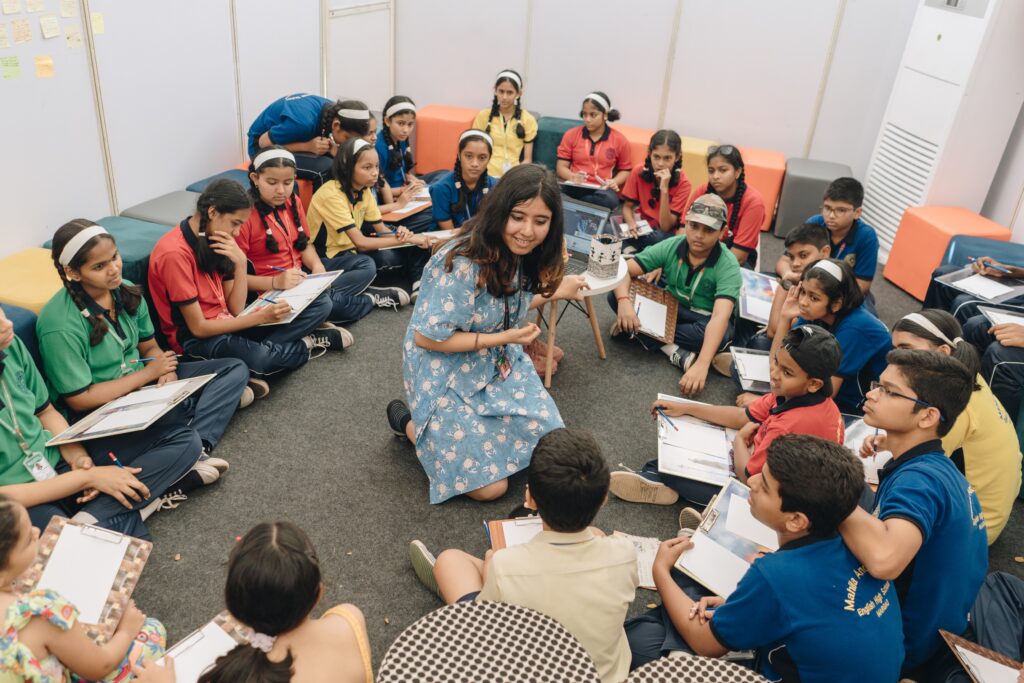



Panaji, January 2024- The state’s heritage proponents have urged the need to make large-format festivals, which are regularly held in Goa, more sustainable, while simultaneously backing the organisation of more green festivals, which incorporate minimising pollution and sustainability in their programming and organisational ethos.
Goa has been a gracious backdrop to a diverse set of festivals. Marius Fernandes, fondly known as ‘Goencho Festakar’ (Goa’s Festival Man), hosts a myriad of small low-waste festivals focusing on Goa’s heritage like the ‘Bhurgeanchem Fest’ or ‘Children’s Festival’ and the upcoming ‘Ostoreachem Fest’ or ‘Women’s Fest’ in Salcete, South Goa, on Republic Day.
The recently held LaLaLand Festival, which celebrated its fifth edition in Saligao, North Goa, had a unique ‘Trash4Cash’ component that fostered collaboration among sustainability proponents, celebrated Goan artist Subodh Kerkar and local schools. Children were encouraged to exchange 100 clean waste plastic packets for a ticket to the festival and were educated about the importance of recycling at the waste collection point.
The multi-disciplinary Serendipity Arts Festival (SAF) has also found a permanent residence in the state since 2016, the Goa Arts and Literature Festival (GALF) will celebrate its 14th edition this year, and others that highlight Goa’s vibrant culture, showcasing that the state caters to everyone’s preferences. The coming months will see Echoes of Earth, India’s greenest festival, make its Goa debut and the renowned Monte Music Festival that spotlights Goan culture celebrate its 22nd edition.
However, with unfettered human activity accelerating climate change, there is a need for Goa to ‘go green’ across festival formats to continue hosting them sustainably in a state where tourist footfalls annually outnumber the resident population multiple times.
According to Nilesh Shah, president of the Travel and Tourism Association of Goa (TTAG), two types of clients are attracted to festivals in Goa – those who want offbeat experiences through events such as Echoes of Earth and SAF and those who attend large-format events to simply have fun – and both are welcome.
“Goa’s unique selling point is that there are activities for those of all ages to enjoy around the year; hence, there is a need for a line of communication to be permanently open between state authorities and local communities to discuss the timings of festivals held to facilitate peaceful coexistence,” he says.
Shah also acknowledges the polluting nature of these large-format festivals and states that the solution is to rethink them as they greatly contribute to the local economy.
Fernandes, wearing the tag of Goencho Festakar proudly, states that a balance needs to be maintained when it comes to festivals hosted.
“While larger events may attract more people, they often come at the cost of negatively affecting the local environment and community. Eco- and people-friendly festivals, like ours, offer a more sustainable approach, promoting cultural heritage and community well-being. The cultural and economic benefits derived from our festivals demonstrate that success is not solely measured by foot traffic,” he says.
The way forward, according to local stakeholders, is conceptualising and investing in festivals and events that focus on Goa’s rich natural and cultural heritage.
Vivek Kerkar, President, SKAL International Goa, proposes incentivising the state’s significance as a leading gastronomic tourism destination by organising weekly or monthly culinary festivals.
“These food festivals can feature food vendors that highlight Goa’s melting pot of cultures and implement adequate safety and health measures with government backing. It is crucial to preserve Goa’s unique culinary tradition, blending Portuguese and Goan influences,” says Kerkar.
Heta Pandit, Vice Chairperson, Goa Heritage Action Group (GHAG), which has been showcasing Goa’s culture and music for decades, says that “all festival formats need to be altered to generate awareness about art, music and culture for all age groups and promote sustainability.”
Stalwarts in Goa’s biodiversity conservation journey are also eager for more eco-friendly and people-friendly festivals to make pit stops in Goa.
Naturalist Parag Rangnekar is excited that “the message of sustainability and being responsible towards the environment is being showcased at music and art festivals like Echoes of Earth, which draws the younger generation and its initiatives like the Greener Side Campaign conducted by local conservation experts that are educational to people of all ages.”
Herpetologist Nirmal Kulkarni, who has been associated with the much-lauded Goa Heritage Festival curated by GHAG and was also on a panel discussion for Echoes of Earth’s curtain raiser event ‘Ensemble of the Wild: An Evening of Art, Culture, Music and Meaningful Conversations Around Conservation’, is appreciative of offbeat festivals as they showcase the real essence of Goa and provide platforms for local talent.
According to marine conservationist Gabriella D’Cruz, festivals that actively engage with local organisations and local policy the way Echoes of Earth’s initiative, the Greener Side Campaign, is being conducted in collaboration with the Goa State Biodiversity Board, are positive additions to Goa’s experiential tourism activities roster.
Roshan Netalkar, Festival Director, Echoes of Earth, says that the need of the hour is more festivals, especially large-format variants, incorporating sustainable elements into their organisation.
“Echoes of Earth is a one-of-a-kind festival that is open to people of all ages to come and immerse themselves in art, culture, sustainability and music. It is entertaining as well as incredibly educational as we highlight the need for biodiversity conservation,” he states.
Netalkar adds that the festival decor is crafted out of materials sourced from scrap yards further emphasising Echoes of Earth’s goal of becoming a zero-waste festival.
However, the jury is still out among local stakeholders on whether this balance between large-format and smaller-scale eco- and people-friendly festivals can be struck.
Mandar Bhagat, President, Goa Bird Conservation Network, says that large-format festivals, if forced by state authorities to incorporate sustainability into their programming, will only comply out of obligation with no real intent, while according to Divya Singhal, chairperson, Centre for Social Sensitivity and Action (CSSA) and professor at Goa Institute of Management, Sanquelim, large-format festivals like SAF have already paved the way by successfully incorporating sustainable elements and is people-friendly.
Singhal says that such festivals “feature platforms, workshops and events specifically designed to attract and cater to an audience that is supportive and keenly interested in these cultural and educational experiences.”


